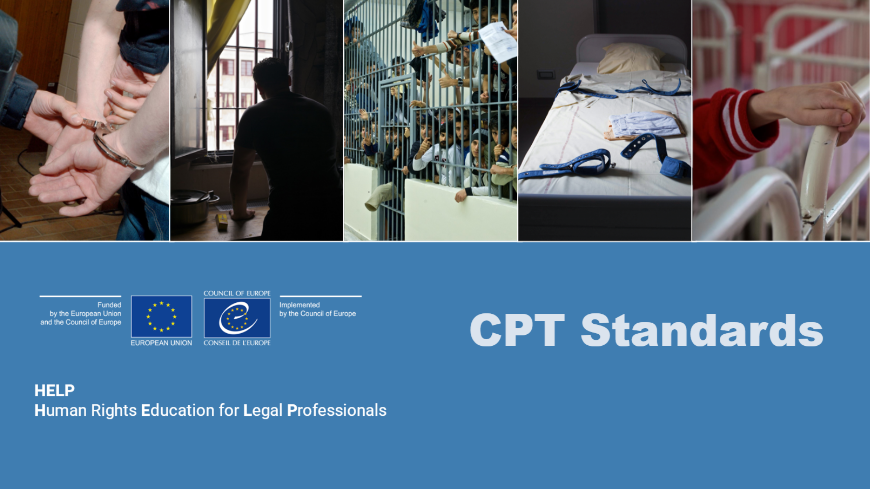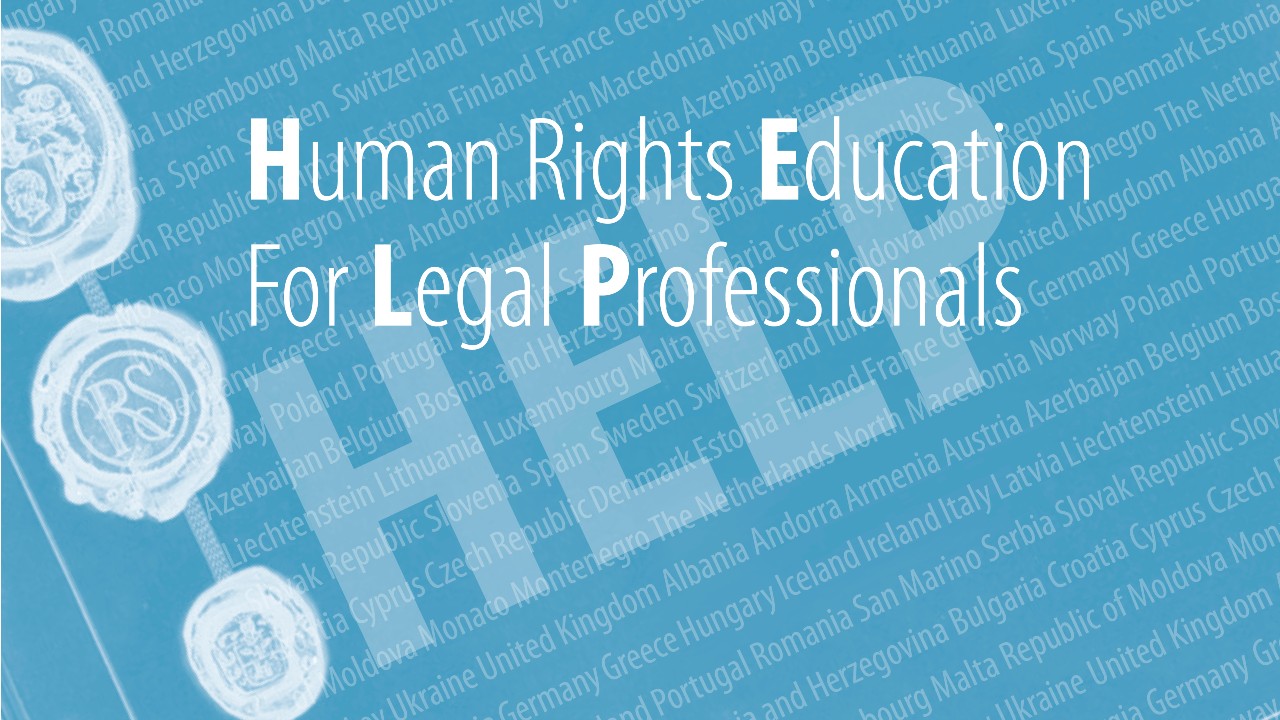A new free online course on the standards developed by the European Committee for the Prevention of Torture and Inhuman or Degrading Treatment or Punishment (CPT) is now available on the HELP online platform.
The course was developed by the Council of Europe HELP Programme in close cooperation with the CPT Secretariat, and with the support of the Project “Strengthening the application of the European Convention on Human Rights in Georgia”, under the EU/Council of Europe Partnership for Good Governance.
The CPT is the Council of Europe’s monitoring body tasked with visiting places of detention and assessing how persons deprived of their liberty are treated, in order to strengthen their protection from torture and inhuman or degrading treatment or punishment. Since its inception in 1989, the CPT has visited thousands of such places of deprivation of liberty.
After each visit, the CPT sends a detailed report to the State concerned. This report includes the CPT’s findings, and its recommendations, comments and requests for information. Over decades, in its reports, the CPT has developed abundant standards in various areas (e.g. creating a culture of “zero tolerance” of ill-treatment, developing legal safeguards against ill-treatment, carrying out effective investigations into alleged ill-treatment, ensuring suitable detention conditions, providing appropriate health care, etc.).
Preventing ill-treatment of persons deprived of their liberty requires that all actors involved are properly trained and well equipped to prevent or address unacceptable treatment and conditions.
The purpose of the Council of Europe HELP course on CPT standards is to familiarize you with the CPT’s key standards concerning the five most important places of deprivation of liberty: police stations, prisons, immigration detention facilities, psychiatric establishments and social care homes.
Course structure (6 modules):
- Introduction (what is the CPT and how does it work?; CPT visits; interaction between the CPT and other Council of Europe bodies; the CPT and other preventive mechanisms; general principles; how to use CPT resources)
- Law enforcement (apprehension; arrival at a police station; safeguards; police interviews; conditions of detention; appearance before a judge)
- Prisons and other penal institutions (admissions procedure; ill-treatment; conditions of detention; health care in prisons; special categories of prisoners; other issues)
- Immigration detention (detention as a last resort; safeguards during detention; conditions of detention; children; staff; health care; removal of foreign nationals)
- Psychiatric establishments (ill-treatment; patient’s living conditions; psychiatric treatment; staff; means of restraint; safeguards)
- Social care homes (de-institutionalisation; ill-treatment; resident’s living conditions; care; staff; means of restraint; safeguards)
The topics are explored in a practical way, through presentations, interactive screens, knowledge tests and reflective exercises.
The course is primarily intended for legal professionals, staff from places of deprivation of liberty, national preventive mechanisms (NPMs) and policy makers, but can be also used by national human rights institutions, civil society organisations, university lecturers and students, etc. The course users are welcome to access all course modules or only those which are of particular interest to them.
The course is available in English and will soon be translated into other languages.





